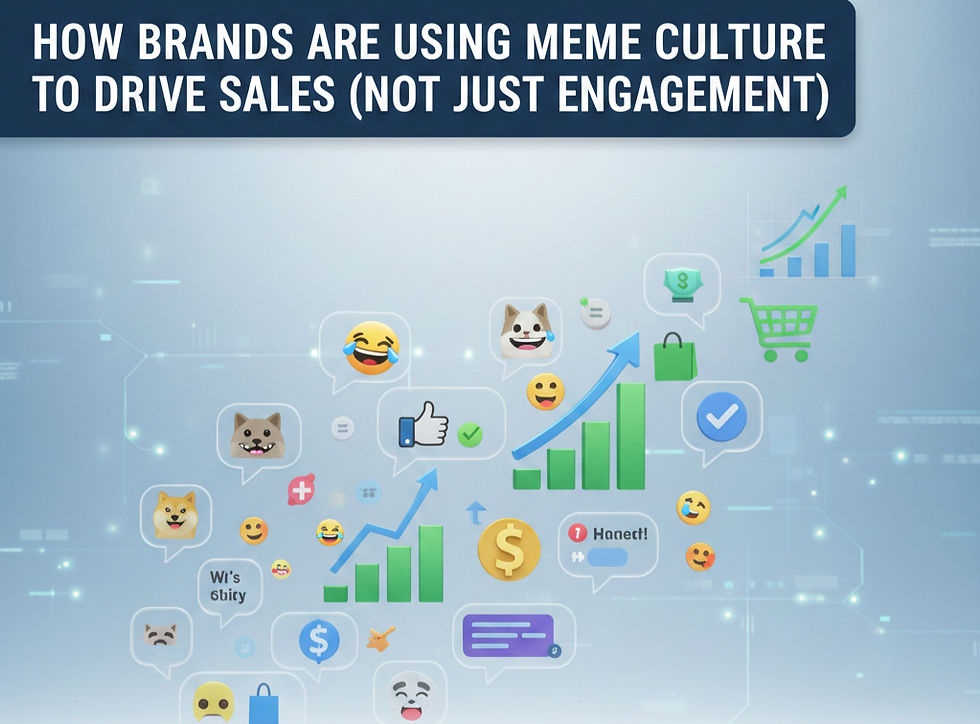How Indian D2C Brands Are Winning Big with Micro-Influencer Collaborations
- Active Toast
- Jun 18, 2025
- 4 min read
In 2025, the world of influencer marketing is shifting—and Indian D2C (direct-to-consumer) brands are leading the charge by focusing less on high-profile macro influencers and more on everyday creators with smaller, highly engaged audiences.
Micro-influencer collaborations are proving to be one of the smartest marketing moves for Indian brands seeking authentic engagement, higher ROI, and measurable growth. If you're a D2C founder, social media manager, or brand strategist, here's everything you need to know.

Why Indian D2C Brands Are Shifting from Macro to Micro Influencers in 2025
The influencer landscape in India has matured. Gone are the days when partnering with a celebrity or macro influencer (100K+ followers) was the default strategy. In 2025, authenticity, relatability, and real impact matter more.
Micro-influencers—creators with 1K to 50K followers—are turning heads because they:
Have deeper connections with their followers
Create more niche, focused content
Deliver better engagement rates (often 3–5x higher than macro accounts)
Are more affordable and flexible to work with
For Indian D2C brands, especially those in beauty, skincare, fashion, food, wellness, and home decor, micro-influencers are now the goldmine.
What Makes Micro-Influencers So Effective?
Trust and Relatability
Their audience often views them as peers or friends. A product recommendation from a micro-influencer feels like a genuine suggestion, not a polished ad.
Higher ROI
Micro campaigns require smaller budgets but can yield better results. For instance, a ₹5,000 collaboration with a creator who gets 15% story views and drives 500 link clicks is much more efficient than a ₹50,000 macro collab with little click-through.
Niche Targeting
Whether you're targeting pet lovers, vegan bakers, eco-conscious shoppers, or new moms—micro-influencers dominate niche communities. Their relevance often translates to conversions.
Scalability
Instead of putting all your eggs in one macro basket, you can run a multi-influencer campaign across 10 micro-creators and A/B test different styles, messages, and CTAs.
Real (and Hypothetical) Campaign Examples
1. Dot & Key Skincare
This beauty brand often partners with skincare micro-creators for "Nighttime routine" Reels and Instagram Stories. Their ROI comes from authentic product usage clips, discount codes, and swipe-ups.
2. Hypothetical: A Vegan Snack Brand
Imagine a brand like “SnaccBites” collaborating with 20 food micro-influencers across India to showcase how their snacks fit into busy work-from-home schedules. The campaign includes unboxing Reels, feedback polls on Stories, and a giveaway CTA—all using the creators’ unique voices.
3. Blisswear (Hypothetical D2C Innerwear Brand)
Instead of celebrity collabs, they work with 15+ micro-creators who post honest reviews, comfort tests, and FAQs on wearing their bras daily. Most traffic is driven via Story links and creator discount codes.
Content Types That Work Best for Micro-Influencer Collabs
Here’s what’s performing best on platforms like Instagram and YouTube Shorts:
Instagram Reels — Unboxings, tutorials, transformation videos
Story Reviews — Quick, face-to-cam reviews with poll or link sticker
Before vs After — For beauty, skincare, fitness, and apparel products
Mini Hauls or “Spend a Day With Me” — Featuring brand usage casually
UGC (User-Generated Content) — Raw, authentic, slightly imperfect content
Want to make your creator content stand out? Check out Hooks That Work in 100+ Ways — a powerful hook and script library designed to help brands and creators create scroll-stopping Reels and Stories.

How to Find and Work with Micro-Influencers in India
Step 1: Identify your niche and customer profile
Use your buyer persona to search for creators who speak to the same audience.
Step 2: Search platforms and tools
Try searching hashtags (e.g., #vegansofindia, #mombloggersindia) or use platforms like Winkl, Plixxo, or Collabstr.
Step 3: Vet their engagement and content quality
Don’t just look at follower count—check engagement rate, content relevance, story views, and comment authenticity.
Step 4: Reach out with a clear proposal
Use email or DMs with a brief explaining your brand, deliverables, timeline, and payment or barter. Need a ready-to-use proposal format? It’s in the SMM STARTER TOOLBOX — perfect for tracking, pitching, and onboarding.
Step 5: Guide the content (but don’t script everything)
Share product info, preferred angles, and brand goals. You can also send hook templates from the Hooks That Work library to help them craft engaging intros and CTAs.
Step 6: Track performance
Beyond likes, measure:
Story views
Link clicks
Discount code usage
UTM data in Google Analytics
Saves and shares
Best Practices for a Successful Micro-Influencer Campaign
Give creative freedom (they know their audience best)
Focus on long-term relationships, not one-off collabs
Provide clear CTAs and incentive links
Always request insights post-campaign
Repurpose good content as ads or organic posts
Bonus: Many Indian D2C founders use the SMM STARTER TOOLBOX to manage creator briefs, outreach templates, and campaign tracking sheets. It’s a game-changer for scaling influencer campaigns.
Final Thoughts
In 2025, the smartest Indian D2C brands aren’t chasing follower counts. They’re focusing on trust, relatability, and micro-communities—exactly where micro-influencers shine.
You don’t need a massive marketing budget to win. You just need the right people talking to the right audiences.
Ready to scale with influencers but don’t know where to start?
Book a discovery call with us — let’s build a collab strategy that works for your D2C brand.



Comments